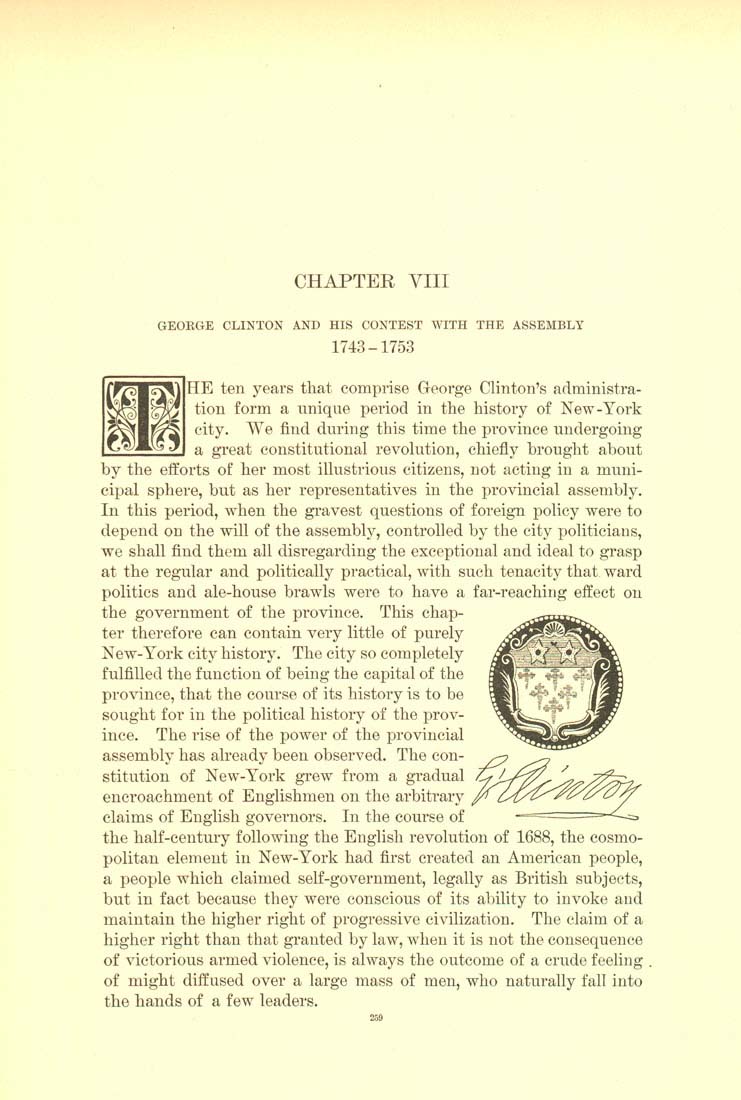CHAPTER VIII
GEORGE CLINTON AND HIS CONTEST WITH THE ASSEMBLY
1743-1753
'fpBcrjl] HE ten years that comprise Greorge Clinton's administra-
S®B^V tion form a unique period in the history of New-York
^fBj^§ city. We find during this time the province undergoing
^^mvg J| a great constitutional revolution, chiefly brought about
by the efforts of her most illustrious citizens, not acting in a muni¬
cipal sphere, but as her representatives in the provincial assembly.
In this period, when the gravest questions of foreign policy were to
depend on the will of the assembly, controlled by the city politicians,
we shall find them all disregarding the exceptional and ideal to grasp
at the regular and politically practical, with such tenacity that ward
politics and ale-house brawls were to have a far-reaching effect on
the government of the province. This chap¬
ter therefore can contain very little of purely
New-York city history. The city so completely
fulfilled the function of being the capital of the
province, that the course of its history is to be
sought for in the political history of the prov¬
ince. The rise of the power of the provincial
assembly has already been observed. The con¬
stitution of New-York grew from a gradual
encroachment of Englishmen on the arbitrary
claims of English governors. In the course of
the half-century following the English revolution of 1688, the cosmo¬
politan element in New-York had first created an American people,
a people which claimed self-government, legally as British subjects,
but in fact because they were conscious of its ability to invoke and
maintain the higher right of progressive civilization. The claim of a
higher right than that granted by law, when it is not the consequence
of victorious armed violence, is always the outcome of a crude feeling
of might diffused over a large mass of men, who naturally fall into
the hands of a few leaders.
|








